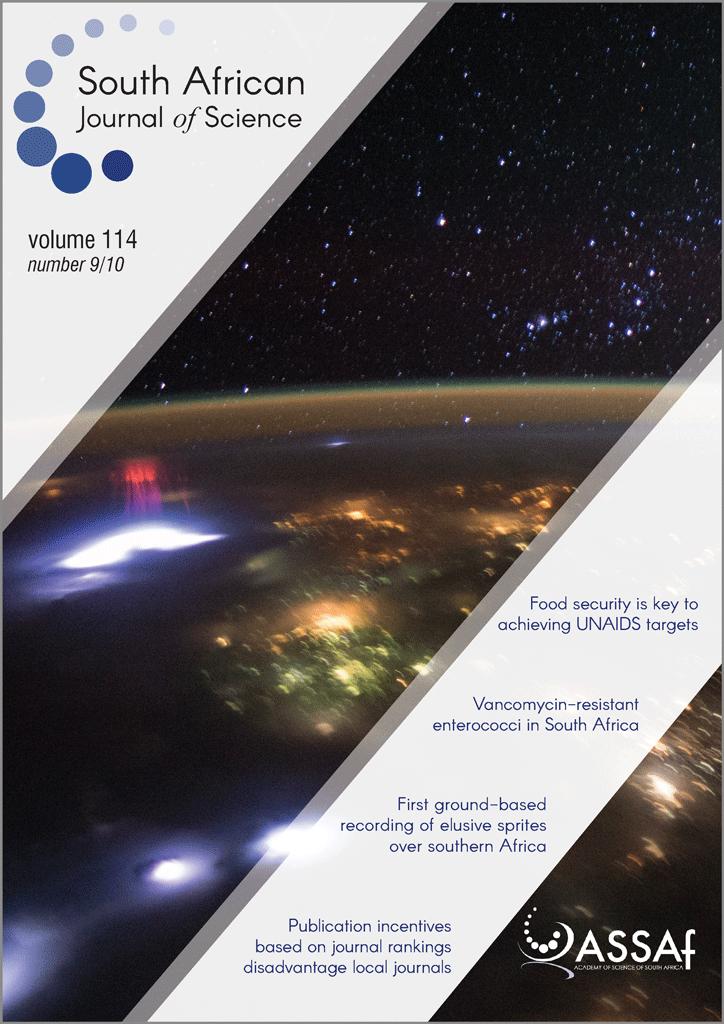Emergence of vancomycin-resistant enterococci in South Africa: Implications for public health
DOI:
https://doi.org/10.17159/sajs.2018/4508Keywords:
antimicrobial resistance, glycopeptide resistance, emerging pathogensAbstract
South Africa is among the countries with the highest prevalence of debilitating diseases such as HIV/Aids and diabetes. In this context, the emergence of vancomycin-resistant enterococci (VREs) in most South African ecological niches is quite disturbing, taking into consideration the fact that therapeutic options in a case of resistant-enterococci infection would be limited. Agricultural practices coupled with the misuse of antibiotics in intensive animal rearing and in hospital facilities have led to the creation of reservoirs of VREs in the environment. VREs can cause serious health problems by transmitting their resistance genes to susceptible pathogens; they are transmitted to humans by direct or indirect contact and through the food chain. We screened thoroughly the AJOL and the PubMed databases for studies on VRE incidence in South Africa. This review gives insight into the current status of antimicrobial resistance management in South Africa; it explores the different pathways involved in the spread of VREs and proposes possible solutions to tackle the issue of VREs and antimicrobial resistance in South Africa and other parts of the world.
Significance:
- The recent detection of vancomycin-resistant enterococci in most South African ecological niches poses a serious threat to public health and is therefore an issue of great concern.
- This study not only addresses the causes and patterns of resistance to antimicrobial agents, particularly in South Africa, but also outlines a holistic approach to potential strategies to tackle antimicrobial resistance in South Africa and the world at large.
Published
Issue
Section
License

All articles are published under a Creative Commons Attribution 4.0 International Licence
Copyright is retained by the authors. Readers are welcome to reproduce, share and adapt the content without permission provided the source is attributed.
Disclaimer: The publisher and editors accept no responsibility for statements made by the authors
How to Cite
- Abstract 1152
- PDF 1162
- EPUB 242
- XML 487













.png)